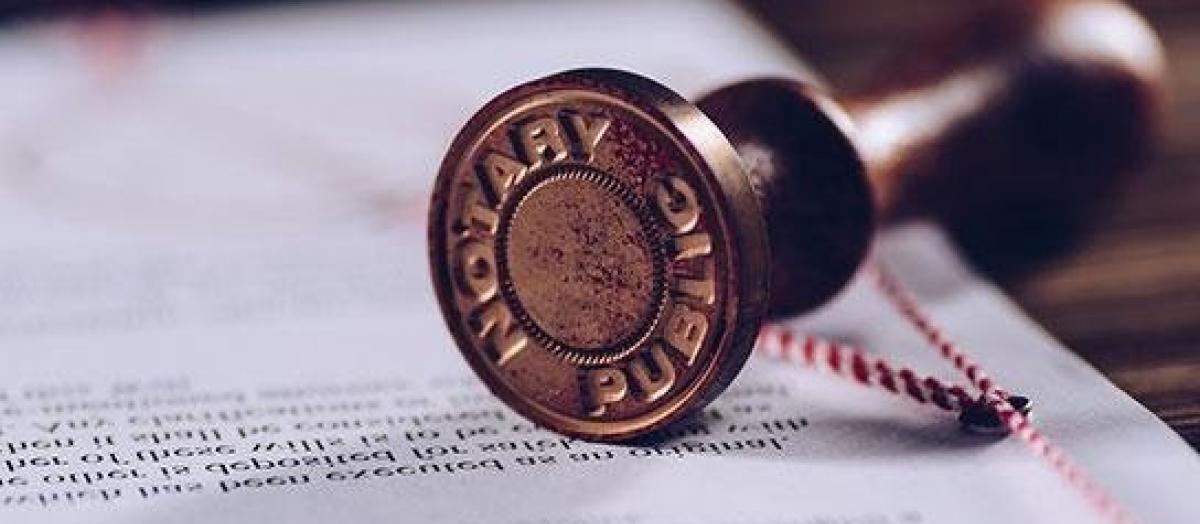DIRCO Laws Demystified: A Guide to Diplomatic Method
Demystifying Notarial Work: Simplifying the Role and Importance of Notaries
In the complex web of lawful documents and verification, notaries stand as columns of assurance and authenticity. Their role, usually shrouded in enigma for numerous, brings substantial weight in making sure the legitimacy and honesty of essential papers. As guardians of validity and truth, notaries play a pivotal component in our culture, yet their work is not always completely understood. By unraveling the complexities shedding and surrounding notarial methods light on the importance of their acts, a clearer understanding emerges of the essential duty notaries play in upholding the material of legal and lawful contracts.
The History of Notarial Work
The history of notarial job dates back to ancient civilizations, where scribes played an essential role in recording essential information and verifying files. This led to the advancement of notaries, people selected by the state to act as impartial witnesses in legal issues.
Throughout the Middle Ages, notaries got importance in Europe, with their features increasing to consist of composing legal papers, licensing trademarks, and protecting documents. The rise of worldwide trade better stressed the value of notarial work in confirming contracts and arrangements across borders.
In the modern era, notaries remain to play an important function in lawful and company purchases by verifying identifications, verifying the authenticity of files, and stopping scams. Their function in accrediting the credibility of agreements includes a layer of protection and trust to the ever-evolving landscape of business and regulation.

Obligations and Duties of Notaries
Notaries play an essential function in validating the authenticity of papers and the identification of signatories. One of their key responsibilities is to witness the finalizing of vital files, such as deeds, contracts, and wills, to make sure that all events are entering into contracts purposefully and willingly.
Moreover, notaries are entrusted with administering affirmations and oaths, which are crucial in legal procedures and the implementation of testimonies. They certify copies of original files, supplying guarantee to establishments that the copies are true replicas of the originals. Notaries have to keep accurate records of all transactions they look after to ensure transparency and responsibility. Overall, the tasks and obligations of notaries are important in protecting the integrity and validity of different documents and deals.
Notarial Certificates and Signatures
Exhibiting careful interest to information, notarial certificates and trademarks function as important elements in confirming the authenticity of legal records. Notarial certificates usually consist of critical info such as the day of registration, the names of the signatories, a summary of the paper, and the notary's main seal. These certificates supply a clear document of the notarial act, making sure that the file can be conveniently recognized and mapped back to the notary that oversaw the procedure.
Trademarks play an essential function in notarial job, as they represent the company website arrangement and permission of the celebrations included. Notaries thoroughly witness the signing of papers to confirm the identification of the signatures and confirm that they are authorizing of their own free will. By fastening their official seal and trademark to the paper, notaries license that the needed procedures have actually been adhered to and that the record is legitimate and enforceable.
Basically, notarial certifications and signatures are the hallmark of authenticity in legal deals, providing guarantee to all celebrations included that the papers are reputable and binding.
Value of Notarial Acts
Registration Refine Explained
Describing the notarization process supplies clearness on the essential actions entailed in confirming legal documents. The registration process commonly starts with the specific providing the record to a notary public. The notary then verifies the endorser's identification via acceptable identification methods. Once the identification is confirmed, the notary guarantees that the individual signing the paper does so voluntarily and with no coercion.

Conclusion

Notarial certificates generally consist of essential details such as the day of registration, the Continue names of the notaries, a description of the document, and the notary's official seal. These certifications give a clear record of the notarial act, making sure that the paper can be easily recognized and traced back to the notary that supervised the procedure.
By attaching their official seal and here are the findings trademark to the paper, notaries license that the required procedures have been followed and that the file is enforceable and valid.
By confirming the identity of the signatories, confirming their determination to enter into the agreement, and certifying the day and area of the signing, notaries play an important function in maintaining the credibility of legal files.After the document is authorized, the notary will certainly attach their official seal or stamp onto the document.